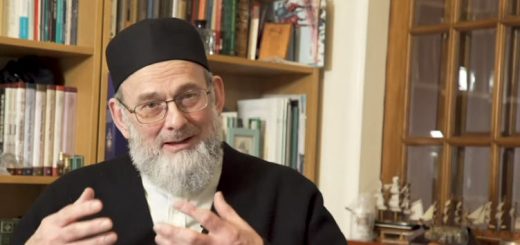The Holy Quran Explained In Clear English .. Al Fatiha
he Holy Quran
Explained
In Clear English
Chapter 1 The Opening
(Al Fatiha)
By the scholar
Mohammad Metwali
Al Sharawi
Translated by Quran Garden
To download the book of interpretation of Surat Al-Fatihah by Sheikh Al-Shaarawi, click Interpretation of Surat Al-Fatihah by Sheikh Al-Shaarawi
Scholar Biography
Mohammad Metwali Al Sharawi was born in 1911 to a farming family in
a small village in Egypt. He was well learned, and throughout his
childhood and adult education he excelled in poetry and literature. His
talents did not pass unnoticed by his father who wanted to send him to
complete his higher education in Al Azhar, one of the most prestigious
Islamic institutes at the time. Mohammad, however, had different plans
in mind. He wanted to stay and help his family farm the land. Sensing his
child’s potential, the father kept the pressure on. In an attempt to change
his father’s mind, Mohammad asked him to buy all the major references
in literature, culture, Arabic language, and Islamic studies. These were
valuable books, and not cheap by any means. Despite the financial
burden, his father came through, and bought him all the books he asked
for knowing well that they were not part of Al Azhar’s curriculum.
Mohamed excelled in his studies, and read far beyond what was asked of
him. He enjoyed the Arabic language, poetry, and was well known for his
ability to express his ideas in a clear and simple manner.
He graduated in 1943 and held several teaching jobs until he moved to
Saudi Arabia in 1950 to work as a professor of religious studies in the
university of Mecca. In 1963 he moved back to Egypt and held a high
position at the Al Azhar. And in November of 1976 he was appointed by
the Egyptian prime minister to head the ministry of religious affairs. One
of his first achievements as a government minister was to establish the
first Islamic bank in Egypt.
Throughout his life Al-Sherawi was recognized with several awards
including the presidential medal and two honorary Ph.D.s from top
universities.
Perhaps his greatest work and most recognizable achievement was a
televised Series called “Reflections upon the Quran” . The television
show started to air in 1980 with the first few episodes covering his vision
and method in explaining the Quran. This was followed by his reflections
upon each verse of the Quran starting from the very first chapter. His TV
2
appearance spanned over 10 years and covered more than two thirds of
the Quran. His death however, prevented him from completing the entire
text.
Al-Sherawi’s method in explaining and reflecting upon the Quran
depended on several sources. First, he relied on his thorough knowledge
of the Arabic language and its intricacies. Second, He drew on his
comprehensive knowledge of the entire text of the Quran, and third he
focused on the social applications and everyday life lessons of the holy
text. He also took special care to answer those who attacked or attempted
to discredit verses of the Quran.
His ability to use clear and simple examples and to illustrate deep
philosophical issues in an easy to understand manner helped him reach
vast audiences of different social and educational backgrounds. His TV
series reruns on many television channels to this day. It is this ability to
reach the masses over decades is what we will try to tap into.
Al-Sherawi passed away in the summer of 1998. His funeral was
broadcast live and attended by tens of thousands of admirers.
This work is a direct adaptation of his TV series. For our purposes, many
English translations of the meaning of the Quran were considered. While
no single translation can capture the true essence and beauty of the
Quran, we found that more can be gained, and less will be lost, by
looking at multiple translations simultaneously.
3
Chapter 1 The Opening (Al Fatiha)
Verse One
“In the name of God, the Most
Merciful, the Most Benevolent”.
The Quran, from the moment it was revealed and through its first words,
was attached to the name of God. The first words of revelation to Prophet
Muhammad were “Read in the name of your Lord who created”
(Chapter 96: Verse 01.) Just as the Quran began its universal mission ‘in
the name of God’, we should also begin the recital of the Quran in the
same way.
The Prophet Muhammad peace be upon him was in the cave of Heraa
when Gabriel, the angel who was responsible for delivering the Quran,
came to him for their first meeting.
The first word of God: ( Read! ).
The command ‘read’ requires the person to have either memorized
something, or to have something written in front of him. But the Prophet
at the time had neither; and Even if he had a book before him, it would
have been pointless, since he could not read or write.
When Gabriel delivered God’s command: ‘read’, the Prophet -being
aware of his capabilities- replied : “I cannot read”. Gabriel repeated to
the messenger: ‘read’, but the Prophet replied every time “I cannot read”.
The opponents of Islam picked out this point to question: how is it
4
possible when God -the all capable- commands His unlearned messenger
to ‘read’ and then the prophet replies with “I cannot read”? Isn’t God’s
command and wish always enforced through His powers that say to an
object be and it becomes?
We reply that God communicated, through His powers that say to an
object be and it becomes, while the Prophet communicated back through
his human nature which said that he is unable to read even one word.
However, it is the God’s power, through this heavenly message, that
would transform this illiterate man into teacher for entire mankind until
the Day of Resurrection. And while every person learns from another
human being, Muhammad (peace be upon him) was taught by God. He
became a teacher for the greatest scholars of mankind who took
knowledge and wisdom from him. So when the prophet said “I cannot
read”, the answer came from God in very next verse:
Read: In the Name of your Lord who created, created Man of a
blood-clot (96:1,2)
Meaning that God who created from nothing will make you, Muhammad,
read and deliver to people a message, the likes of which the civilizations
of the world will fail to produce until the Day of Judgment. God
Almighty continued:
Read, for your Lord is most generous, Who taught by the pen
(96:3,4)
Note that God in this verse used the formula of emphasis “Most
Generous”. When you are taught by a person, then it is through the mere
generosity of God because He made it possible for you to learn from your
equal. But if God himself is the one who is teaching you, then He is ‘the
Most Generous’ because He has elevated you Muhammad to the highest
level.
God wants us to know that the prophet (peace be upon him) does not
recite the Quran because he had learned reading, rather he recites it in the
name of God. And as long as he recites in the name of God, then it does
not matter whether he was educated by a man or not, as God has taught
him above the standards of entire mankind.
Likewise, we should begin reading the Quran with the name of God,
because He is the one who made it easy for us in revelation, and recital.
He says:
Say, ‘If God had so willed, I would not have recited it to you, nor
5
would He have made it known to you. I lived a whole lifetime among
you before it came to me. How can you not use your reason?’ (10:16)
Here you may wonder: Is the recital of the Quran the only task we are
required to begin with God’s name? The fact is that we are asked to
begin every act in the name of God. We must honor his favors and
bounties upon us in this universe. For example, when we farm the land,
we should begin in the name of God because we did not create the land
that we cultivate, or the seed that we sow, nor have we poured down rain
for the plants to grow. In fact, the farmer who plows and plants can be
completely ignorant about the composition of the soil, the substances
within each seed, and the effect of water on their interaction. Our limited
role in this scenario is to our intellect and capabilities -which are created
by God- to work the substances that are also created by God until the
plants grow. We have no power to coerce the earth to yield crops. It is
beyond our capability to create a single seed or bring down rain. Hence,
when you begin your work with the name of God, you acknowledge that
He is the one who has subjected the earth, seed and water for you. In
essence, you are declaring that these elements function in the name of
their creator.
God has subjected the entire universe for our benefit. Sadly, we are often
under the misconception that we have power or true autonomy in this
world. Moreover, and due to the reliability and monotony by which
everything functions for us, we fall under the false impression that the
physical laws of cause and effect, action and reaction are naturally
inherent, and independent of their Creator. However, the truth is that it is
the will of God that allows these laws to function, and if He wills, He
stops them. For example, a domesticated camel or an enormous elephant
can be led by a child. But even a strong man cannot domesticate a small
snake. If taming an animal was done through our own powers -such as
our physical and intellectual advantages- then we should easily be able to
domesticate a small snake or an insect. God wanted to present us these
animals as proof so we realize that He has subjugated what He willed,
and He did not subjugate what He did not will as stated in this verse:
Do they not see the cattle among things We have fashioned by Our
power, which they own, Whom We made subservient to them so that
some of them they ride and some they eat? (36:71,72)
Now, you can appreciate that the submissiveness of livestock is through
their subjugation by God, not through our abilities.
Let’s look at another example. While scientists explain how clouds form
6
and rain falls through the laws of physics in the atmosphere, God
Almighty wants to draw our attention towards a higher power. When
there are droughts, we should realize that this is not only happening
through the procedures of the universe, but also through the will of the
Creator. If the universe functioned exclusively according to its
procedures, then what makes them ineffective at times? Conditions may
be perfect for rain, and the forecast may call for plenty, yet no rain
comes. It is the will of God that is above the laws of the universe.
Therefore, everything in the world is in his name. He is the one who
gives and withholds even in the matters in which we have been given
some freedom of choice as stated in the following verse:
To God belongs the kingdom of the heavens and the earth. He
creates whatsoever He wills, bestows daughters on whosoever He
will, and gives sons to whom He choose.On some He bestows both
sons and daughters, and some He leaves barren. He is all-knowing
and all-powerful. (42:49,50)
This last example comes from within ourselves. A perfectly healthy
married couple may not conceive children despite continually trying.
This man and woman may have all the required health attributes to
conceive, and all the physical conditions have been met for pregnancy.
However, conditions do not create a human being, God does. If He wills
he allows the laws to function and if He wills He stops their function.
The lesson to take is, while we live our lives through causes and effects,
and the laws of the universe, we should always keep in mind that these
laws do not govern God, rather it is Him who creates and governs them
at all time. Hence, everything and every action should begin with God’s
name.
God Almighty -the creator of the universe- can make the laws of the
universe function and cease to function. He is also able to go beyond the
laws. Take, for example, the story of Prophet Zechariah (peace be upon
him) who was responsible for providing for Virgin Mary. He used to
bring her all her daily needs as she secluded for worship. One day, when
he walked into her room, he was surprised to find food he did not bring,
nor seen the likes of before.
Number of View :2646














